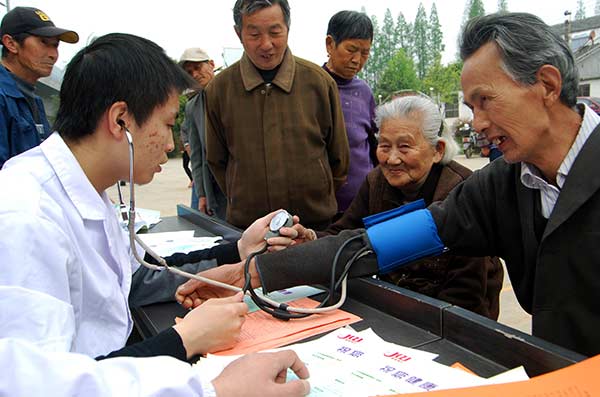Surgical relief aids Parkinson's patients


Parkinson's disease is one of the most common movement disorders that Li Yongjie and his colleagues at the Beijing Institute of Functional Neurosurgery have been fighting over the past 20 years.
China has more than 2 million patients with Parkinson's, accounting for about 40 percent of the global total. With the country's population aging rapidly, the number is rising.
The condition was first described in 1817 by British physician James Parkinson as "shaking palsy". Medical scientists now know the disease is caused by the degeneration of neurons in a region of the brain that controls movement.
However, the cause of the degeneration remains unclear, although it is believed to involve both genetic and environmental factors.
Li welcomes the growing acceptance of surgery as an effective treatment. When he conducted the first microelectrode-guided stereotactic surgery in China two decades ago, it was very hard to persuade patients of the benefits of such an operation.
"They were afraid they would hemorrhage. Even many physicians opposed the surgery," he recalled.
As China becomes more aware of the illness, treatment is developing. Deep brain stimulation - which affects the abnormal cells through tiny electrodes implanted in the brain - has replaced stereotactic surgery as the main therapeutic treatment for Parkinson's disease.
The first Chinese-made "brain pacemaker" was implanted in a patient's brain in November 2009. Chinese-made devices have since been introduced to other countries, including Pakistan, Bangladesh and Indonesia, where they are bringing hope to patients.
In recent years, researchers at Tsinghua University have developed a second generation brain pacemaker that is rechargeable and has a longer life.
Though early treatment can help control the symptoms effectively, Li noted that the disease can go into remission, but cannot be cured with current medical treatments.
"I often tell my patients that the brain ages like the skin. As you grow older, your skin wrinkles and become mottled with dark spots. So does the brain, and no one can really stop the aging process," he said.
He warned that males and younger people need to be more careful about the disease.
In the past two decades, his institute has performed more than 5,000 operations on Parkinson's patients; the records indicate that men are 1.46 times more likely to contract the disease than women, and more than half of the patients were age 53 or younger.
- China's commercial rocket launches new satellites from sea
- Ten photos from across China: Jan 9 - 15
- Legal tools essential for AI regulation
- China launches remote-sensing satellite for Algeria
- China reports drop in workplace accidents, fatalities in 2025
- From Kansas to karst: Unpacking Guangxi's charms



































